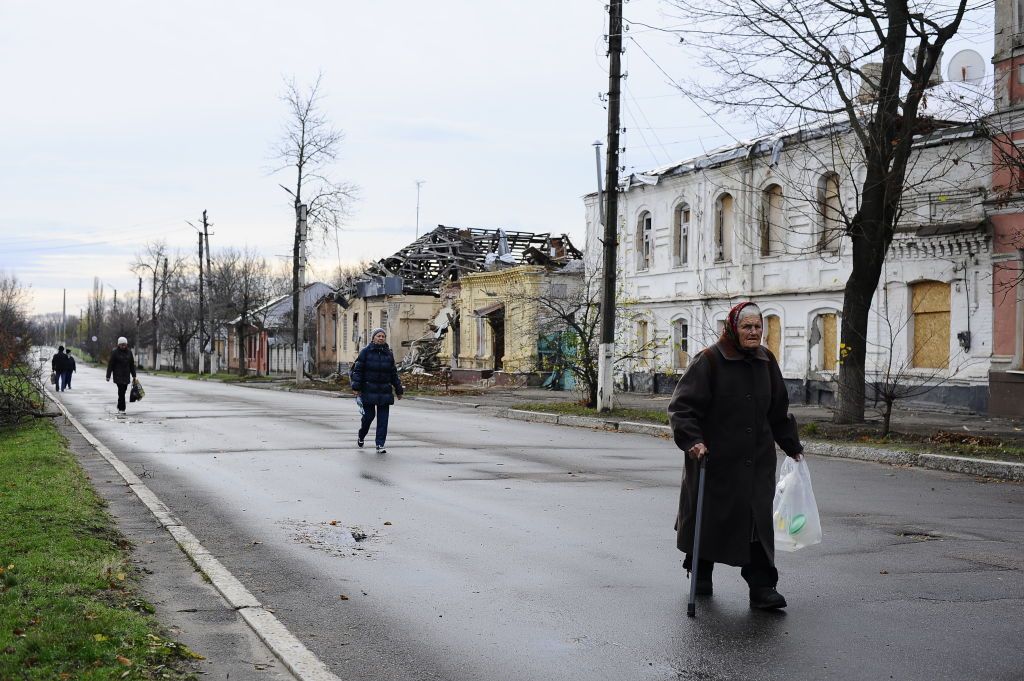Russia launched an attack on the city of Vovchansk in Kharkiv Oblast, Ukraine, killing two men and injuring a man and a woman. This incident was part of a series of regular attacks on settlements in northeastern Ukraine due to their proximity to the front line and the border with Russia. The attacks in Vovchansk took place on a nine-story building and house, causing casualties and destruction. The city of Kharkiv has been facing intensified attacks from Russia, which have included the use of missiles, glide bombs, and drones, resulting in the destruction of energy infrastructure and civilian casualties. In a recent incident, Russia destroyed all the electrical substations in Kharkiv, leaving the city without a stable power supply. Kharkiv Mayor Ihor Terekhov expressed concerns about the city becoming “a second Aleppo” if it does not receive assistance in obtaining air defense systems.
According to Bloomberg, Western officials do not believe that Russia currently has the capability to launch a new offensive on Kharkiv without a substantial replenishment of Russian troops. This assessment suggests that while Russia may continue its attacks on the region, a large-scale offensive on Kharkiv would require significant reinforcements. The ongoing conflict between Russia and Ukraine has left many cities in the country vulnerable to attacks, with Kharkiv being one of the primary targets due to its strategic location near the border with Russia. The attacks on Kharkiv have resulted in a humanitarian crisis, with residents facing shortages of essential resources and infrastructure damage. The city’s Mayor and regional authorities have been calling for international support to help protect the city and its residents from further attacks.
The recent attacks on Vovchansk and Kharkiv are a stark reminder of the ongoing conflict between Russia and Ukraine, which has resulted in numerous casualties and significant damage to infrastructure. The attacks on civilian areas highlight the devastating impact of the conflict on the local population, who are caught in the crossfire of the war. The international community has condemned Russia’s actions in Ukraine and called for an end to the violence. Humanitarian organizations are also providing assistance to those affected by the conflict, including food, shelter, and medical aid. The situation in Ukraine remains precarious, with the possibility of further escalations of violence and instability in the region.
The attacks on Vovchansk and Kharkiv underscore the urgent need for a peaceful resolution to the conflict between Russia and Ukraine. The ongoing violence has taken a toll on the civilian population, with many innocent lives lost and communities destroyed. Efforts to reach a ceasefire and engage in diplomatic dialogue have been ongoing, but progress has been slow. The international community plays a crucial role in supporting Ukraine and ensuring that the country’s sovereignty and territorial integrity are respected. Continued pressure on Russia to end its aggression and engage in peaceful negotiations is essential to finding a lasting resolution to the conflict. Support for independent journalism in Ukraine is also crucial in raising awareness about the situation on the ground and holding those responsible for violence and human rights abuses accountable.
As the conflict in Ukraine continues to unfold, solidarity and support from the international community are vital in helping the country defend itself against Russian aggression. The attacks on Vovchansk and Kharkiv serve as a stark reminder of the brutality of war and the urgent need for a peaceful resolution to the conflict. By standing with Ukraine and advocating for peace, we can help protect innocent lives and support the country’s journey towards stability and security. Supporting independent journalism in Ukraine is one way to stay informed about the situation on the ground and contribute to efforts to end the violence and restore peace in the region. Joining the fight for justice and accountability in Ukraine is essential in building a safer and more secure future for all those affected by the conflict.


